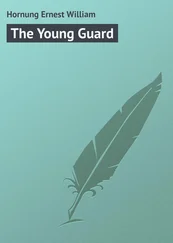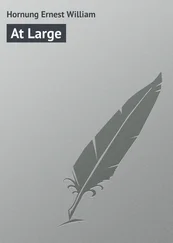Ernest Hornung - Peccavi
Здесь есть возможность читать онлайн «Ernest Hornung - Peccavi» — ознакомительный отрывок электронной книги совершенно бесплатно, а после прочтения отрывка купить полную версию. В некоторых случаях можно слушать аудио, скачать через торрент в формате fb2 и присутствует краткое содержание. Жанр: foreign_prose, на английском языке. Описание произведения, (предисловие) а так же отзывы посетителей доступны на портале библиотеки ЛибКат.
- Название:Peccavi
- Автор:
- Жанр:
- Год:неизвестен
- ISBN:нет данных
- Рейтинг книги:3 / 5. Голосов: 1
-
Избранное:Добавить в избранное
- Отзывы:
-
Ваша оценка:
- 60
- 1
- 2
- 3
- 4
- 5
Peccavi: краткое содержание, описание и аннотация
Предлагаем к чтению аннотацию, описание, краткое содержание или предисловие (зависит от того, что написал сам автор книги «Peccavi»). Если вы не нашли необходимую информацию о книге — напишите в комментариях, мы постараемся отыскать её.
Peccavi — читать онлайн ознакомительный отрывок
Ниже представлен текст книги, разбитый по страницам. Система сохранения места последней прочитанной страницы, позволяет с удобством читать онлайн бесплатно книгу «Peccavi», без необходимости каждый раз заново искать на чём Вы остановились. Поставьте закладку, и сможете в любой момент перейти на страницу, на которой закончили чтение.
Интервал:
Закладка:
"Come down out of that, ye devil!"
"Do you show yourself, you cur!"
And this command Robert Carlton obeyed, his manhood rising yet again. But no sooner was he at the window than both panes crashed to powder over his head, and the surrounding bricks rang with the volley. The clergyman had a scratch from the falling glass, and a stone stung him on the hand. The blood bubbled in his veins.
"Cowards and curs yourselves!" he shouted down, shaking his fists at the crowd; and in ten seconds he was at the front door, with a couple of walking-sticks snatched from the stand. But he himself had turned the key and shot the bolt within the last few minutes, and this gave him time to think.
"Quiet, sir – quiet!" he cried to the dog at his heels. "They've right on their side," he groaned, "after all! Quiet, old doggie; come back; it's all deserved. And it's only the beginning of what we've got to bear!"
So he bore it, sitting on the stairs, where no window overlooked him, and soothing Glen with one hand, restraining him with the other; and yet, for his sin, despising his forbearance, even while he continued telling himself it was his duty to forbear.
And now breaking glass and barking dog made night a nightmare in the dark and empty house: the infuriated villagers were smashing the rectory windows one by one. Where the blind was up, the glass spread, and the stone flew far into the room; where the blind was down, stone and glass rattled against it, and fell in one heap with one clatter. So dining-room and drawing-room were wrecked in turn, at short range, with the heaviest available metal, and much interior damage. And still the master of the house sat immovable within, nodding grimly at each crash; wincing more at the curses; and once releasing the dog to stop his ears altogether.
It was no use; curiosity compelled him to listen; he was forbidden to shirk one stripe. And that was a communicant, that cursing demon; this was the schoolmaster, yelling like one of his own boys; the other Palmer, of the Plough and Harrow, a very old enemy, hoarse as a crow with drink and triumph. Young Cubitt, again, who cheered each crash, was one of the disaffected; but till to-night most of this howling mob had been his flock. Now all the good work was undone, was stultified, the good seed poisoned in the ground; and not for the first, and not for the fiftieth time that week, the confessed rake asked himself whether more harm than good would not come of his confession.
Meanwhile, of all the voices that he heard and could distinguish, only one diverted his self-contempt for an instant. This was the soft, passionless voice of a young gentleman, evidently not himself engaged in the stone-throwing, pointing out panes still to break to those who were. This was the voice of Sidney Gleed.
The thing had gone on for ten minutes or more when the outcry altered in character: an interruption had occurred: was it the police? No, the rector of the parish was too well acquainted with the character of its solitary constable. He would come up when all was over. Then who could this be?
The shower of stones had ceased as suddenly as it had begun. New oaths were flying in a new direction, and a voice hitherto unheard was heaping abuse on the abusers; with a strange thrill, the clergyman recognised it as the voice of Tom Ivey, the young contractor who was building the transepts; and he could remain no longer on the stairs. Stealing into the drawing-room, he stumbled across a crackling drift of glass, and, unnoticed now, stood in the wrecked bow-window, with the fresh air upon his face once more.
Lanterns were skipping right and left, their erratic rays giving momentary glimpses of a stalwart figure in pursuit, a stick whirling about his ears, and resounding on the backs and shoulders of the retreating rabble. Some stayed to stone the new foe before they ran; and one, Palmer the publican, set his lantern on the gravel and squared up in style. Robert Carlton never saw what followed; for at this moment his maddened dog, which had been tearing about the house in search of an outlet, bounded past him through the shattered window; and, when the rout was complete, the inn-keeper's lantern was a solitary star in the nether darkness. Then the gate clattered, a swinging step approached, and Tom Ivey caught up the lantern in his stride.
Carlton sprang through the window to meet him, every other emotion sunk for the moment in one of overflowing gratitude.
"Tom," he cried, "how can I thank you – "
"Keep your thanks to yourself."
"But – Tom – "
"Don't 'Tom' me! Keep your distance too. Do you think I haven't heard about it? Do you think I'd lift a finger for you – let alone a stick? No, sir, I'd liefer take that to your own back; but I fare to mind when the Rector of Long Stow was a good man, who didn't preach too tall, but acted up to what he did preach; and I won't see the house he lived in wrecked and ruined because a blackguard's followed him."
"I am all that," said Mr. Carlton. "Go on!"
The other stared, not so much disarmed as confounded.
"I'm sorry to open so wide, and you know I'm sorry," he at length burst out. "'Tain't for me to call you over, sir, and I won't tell you no more lies. I couldn't bear to see them snarling curs setting on you the moment you was down, and that's the truth! But it wasn't what I come back to say," continued Ivey doggedly. "I come back to say you can get another party to go on with that there building, for I won't work no more for you. The plant's yours; you found that for the job; you can find more men. I throw up the contract: take the law of me if you like."
Robert Carlton was back in his study. It was the one front room which had escaped inviolate; the open lattice had saved it; not a pebble added to the old disorder. The rector sighed relief as he held up the lamp on entering; then he shot the rubbish out of the big arm-chair, and himself lay back in it like the dead. A bloody smear, where the glass had grazed his cheek, enhanced his pallor; his eyes were closed; no muscle moved. And yet his wits clung to him like wolves, till presently the white brow wrinkled, the heavy eyelids twitched.
"May I come in, reverend?" said the saddler's voice.
Carlton assented with a sigh, but did not raise himself to greet the visitor, who came in mopping his forehead, reversed the chair at the writing table, and seated himself with ominous deliberation. Then he mopped again, and was slow to speak; but his scornful expression prepared the clergyman for more of that which he was resolved to bear.
"Pharisees!" cried Fuller at last. "Humbugs and hypocrites!"
The words were precisely those which Robert Carlton expected and must endure, but against the plural number he felt bound to protest. "We are not all alike, Mr. Fuller," he said; "thank God, I am but one out of many thousands."
"You?" cried the saddler. "Gord love yer, reverend, did you think I meant you ? No, sir, it's the stupid fools and canting cowards I mean, that take and hit a man as soon as ever he's down; not the man they hit."
Mr. Carlton sat silent, astounded, and tingling between pain and pleasure. He fancied he had run through the gamut of the emotions, but here was a new one that he feared to dissect.
"Not the man," proceeded the saddler in raised tones – "not the man who is worth the rest of the parish put together – saint or sinner – guilty or innocent!"
Yes, it was pleasure! It was pleasure, acute and lawless, wicked, ungovernable, and yet to be governed. To have one man's sympathy, how sweet it was, but how shameful in a guilty heart that would be contrite too! It had brought a colour to his face, a light to his eyes; ere the one had faded, and the other failed, Robert Carlton's will had frozen that tiny rill of comfort at its fount.
Читать дальшеИнтервал:
Закладка:
Похожие книги на «Peccavi»
Представляем Вашему вниманию похожие книги на «Peccavi» списком для выбора. Мы отобрали схожую по названию и смыслу литературу в надежде предоставить читателям больше вариантов отыскать новые, интересные, ещё непрочитанные произведения.
Обсуждение, отзывы о книге «Peccavi» и просто собственные мнения читателей. Оставьте ваши комментарии, напишите, что Вы думаете о произведении, его смысле или главных героях. Укажите что конкретно понравилось, а что нет, и почему Вы так считаете.












